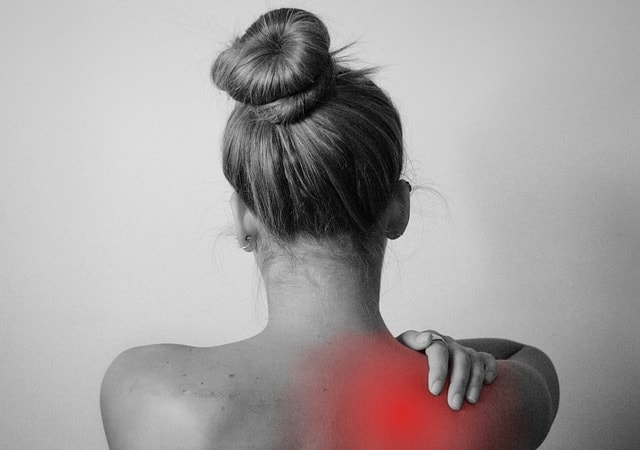Comprehensive Guide to Sexual Assault Support, with a Sex Assault Attorney

Understanding Sexual Violence: Types, Impact, and Prevalence
Sexual assault remains one of society’s most devastating and underreported crimes. This comprehensive guide aims to provide vital information for victims, survivors, loved ones, and advocates navigating the complex aftermath of sexual violence, including understanding their legal rights and support options in cases of sex crime.
Sexual assault encompasses a wide range of unwanted sexual contact or behavior occurring without explicit consent. While each case is unique, understanding the various forms of sexual violence can help victims identify and articulate their experiences.
Forms of Sexual Assault and Sexual Abuse

Sexual violence manifests in numerous ways, including but not limited to:
- Rape and attempted rape: Forced penetration or attempted penetration without consent
- Unwanted sexual contact: Touching of intimate body parts without permission
- Sexual coercion: Pressure, manipulation, or threats to perform sexual acts
- Sexual exploitation: Taking non-consensual or abusive sexual advantage of another person
- Child sexual abuse: Sexual activity or exposure involving minors
- Incest: Sexual contact between family members
- Sexual harassment: Unwelcome sexual advances, comments, or behavior
Most sexual assaults are perpetrated by someone known to the victim, contradicting common misconceptions about stranger attacks. Sexual violence occurs across all demographics regardless of age, gender, socioeconomic status, or background. Understanding the legal framework surrounding sex crimes, including sexual assault laws in California, is crucial for recognizing the seriousness of these offenses and the potential for both criminal prosecution and civil claims for victims.
Impact of Sexual Assault on Survivors
Those who have been subjected to a sexual act without consent, often through manipulation or coercion, experience profound and lasting effects, including:
- Physical injury: From minor bruising to severe trauma requiring medical treatment
- Post-traumatic stress disorder (PTSD): Flashbacks, nightmares, and severe anxiety
- Depression and anxiety: Persistent feelings of sadness, fear, or worry
- Emotional distress: Shame, guilt, anger, and feelings of violation
- Physical distress: Sleep disturbances, chronic pain, and other somatic symptoms
- Social impact: Difficulty with trust, relationships, and intimacy
- Mental anguish: Suicidal thoughts, self-harm, and diminished self-worth
Every survivor’s experience is unique, and there is no “correct” way to respond to sexual trauma. The healing journey is deeply personal and often non-linear.
Immediate Steps After Sexual Assault

Safety and Medical Care
If you or someone you know has suffered sexual assault, safety is the immediate priority:
- Get to a safe location away from the perpetrator
- Contact trusted support such as a friend, family member, or advocate
- Preserve physical evidence by avoiding showering, changing clothes, or cleaning the area
- Seek medical treatment as soon as possible, even without visible injuries
Medical professionals can provide essential care, including:
- Treatment for injuries
- Testing for sexually transmitted infections
- Emergency contraception
- Collection of forensic evidence (if desired)
Many hospitals have specially trained Sexual Assault Nurse Examiners (SANE) who can perform forensic exams in a compassionate, trauma-informed manner.
Reporting Options
Reporting sexual assault is always a personal choice. Options include:
Law Enforcement Reporting
- Call 911 for immediate emergency response
- Report to local police department
- Report to campus security (for assaults on college campuses)
Alternative Reporting
- Campus Title IX office (for educational institutions)
- Military reporting systems (for military personnel)
- Workplace human resources (for workplace incidents)
- Religious organization leadership (for incidents involving clergy, such as within the Catholic Church)
- Long-term care ombudsman (for nursing home residents)
Remember that reporting is not mandatory and the decision belongs solely to the survivor. Many resources are available regardless of whether an incident is formally reported.
Support Resources for Sexual Assault Victims

National Resources
- National Sexual Assault Hotline: 1-800-656-HOPE (4673)
- RAINN (Rape, Abuse & Incest National Network): www.rainn.org
- National Sexual Violence Resource Center: www.nsvrc.org
These organizations provide 24/7 crisis support, referrals to local resources, and information in a confidential setting.
Local Support Services
Most communities offer specialized services for sexual assault survivors:
- Rape crisis centers: Provide advocacy, counseling, and support groups
- Community mental health centers: Offer therapy and psychiatric services
- Victim assistance programs: Help navigate the legal system and access compensation
- Shelters: Provide safe housing for those fleeing unsafe situations
Warning Signs of Sexual Abuse
Recognizing potential warning signs can help identify ongoing abuse situations:
- Unexplained injuries or pain in genital areas
- Sudden changes in behavior or personality
- Regression to younger behaviors
- Fear of specific people or places
- Resistance to removing clothes or bathing
- Age-inappropriate sexual knowledge or behavior
- Self-harm or suicidal ideation
Legal Pathways: Understanding Criminal and Civil Options

Survivors of sexual assault have multiple legal avenues available to pursue justice and accountability.
Criminal Cases vs. Civil Claims
Criminal Prosecution
- Initiated by the state, not the victim
- Focuses on punishing the perpetrator
- Requires proof beyond a reasonable doubt
- Can result in incarceration, probation, and sex offender registration
- Victim serves as a witness, not a party to the case
- No direct financial compensation to the victim
Civil Lawsuit
- Initiated and controlled by the survivor
- Focuses on providing compensation to the survivor
- Requires preponderance of evidence (more likely than not)
- Can result in monetary damages paid directly to the survivor
- Broader range of defendants (may include institutions that enabled abuse)
- Proceeds independently of criminal charges
Many survivors pursue both criminal and civil action simultaneously, though each process operates separately and under different legal standards.
Criminal Process for Sexual Assault Cases

When a survivor chooses to file criminal charges:
- Report: The initial report to law enforcement
- Investigation: Collection of evidence, interviews, and case building
- Charging decision: Prosecutor determines whether to file charges
- Arraignment: Formal reading of charges against the accused
- Pre-trial proceedings: Motions, hearings, and plea negotiations
- Trial: Presentation of evidence to determine guilt or innocence
- Sentencing: If convicted, determination of punishment
- Appeals: Potential review by higher courts
The criminal justice process can be lengthy and challenging. Victim advocates can provide support throughout this process, attending court dates and explaining procedures.
Civil Legal Process
The civil process for sexual assault lawsuits typically follows these steps:
- Consultation: Meeting with a sexual assault attorney to evaluate the case
- Investigation: Gathering evidence to support the claim
- Filing a complaint: Formally initiating the civil lawsuit
- Discovery: Exchange of information between parties
- Depositions: Sworn testimony from witnesses and parties
- Settlement negotiations: Attempts to resolve the case without trial
- Trial: Presentation of evidence before a judge or jury
- Judgment: Decision regarding liability and damages
- Collection: Enforcement of judgment if awarded
Statute of Limitations Considerations
The statute of limitations sets the time limit for filing legal action after sexual assault:
- Criminal cases: Varies by state and severity of the offense (typically 3-30 years)
- Civil claims: Generally shorter than criminal statutes (typically 1-5 years)
Many states have enacted extensions or “discovery rules” for sexual abuse cases, recognizing that survivors may need time to process trauma before pursuing legal action. Some jurisdictions have created special “lookback windows” allowing older cases to be filed regardless of when the abuse occurred.
Consulting with a sexual assault lawyer promptly is crucial to understand applicable deadlines.
Working with Sexual Assault Lawyers

When to Consult an Attorney
Consider seeking legal counsel:
- After ensuring immediate safety and medical needs
- Before giving detailed statements to institutions or insurance companies
- When considering options for compensation or accountability
- If concerned about the statute of limitations
- When facing challenges in the criminal justice process
Finding the Right Legal Representation
When selecting sexual assault attorneys:
- Look for experience specifically with sexual violence cases
- Consider their understanding of trauma and sensitivity to survivors
- Evaluate their track record with similar cases
- Check for professional affiliations with victim advocacy organizations
- Assess their communication style and availability
Most sexual assault lawyers offer a free consultation to discuss potential cases without creating an attorney-client relationship until formally retained.
Recovery and Healing After Sexual Assault

Therapy Options
Effective therapeutic approaches for sexual trauma include:
- Trauma-focused cognitive behavioral therapy (TF-CBT)
- Eye movement desensitization and reprocessing (EMDR)
- Group therapy with other survivors
- Somatic experiencing
- Art and expressive therapies
Finding the right therapist may require trying different providers or approaches. Many sexual assault support organizations can provide referrals to trauma-informed practitioners.
Self-Care Strategies
Complementary healing practices may include:
- Mindfulness and meditation
- Physical movement and exercise
- Creative expression
- Establishing safety routines and boundaries
- Connecting with supportive community
- Gradually reclaiming aspects of life affected by trauma
Supporting a Survivor
For those supporting someone who has been sexually abused:
- Listen without judgment
- Believe them
- Respect their decisions about reporting and healing
- Learn about trauma responses
- Encourage but don’t pressure them to seek professional help
- Take care of your own emotional health
Special Considerations for Different Populations
Campus Sexual Assault
Sexual violence on college campuses presents unique challenges:
- Title IX protections in addition to criminal and civil options
- Campus-specific reporting mechanisms and disciplinary proceedings
- Potential academic accommodations for survivors
- Prevention programs and student advocacy groups
Workplace Sexual Assault
When sexual assault occurs in employment settings:
- Employer liability may exist alongside individual perpetrator liability
- Anti-discrimination protections may apply (EEOC claims)
- Workers’ compensation implications
- Potential for constructive discharge claims
Institutional Abuse
Sexual abuse by a school employee, clergy member, medical provider, or caretaker often involves:
- Institutional liability for negligent hiring or supervision
- Potential pattern evidence from other victims
- Complex power dynamics requiring specialized legal approaches
- Extended mental health impacts from betrayal trauma
Compensation for Sexual Assault Survivors
Types of Damages Available
Survivors pursuing civil claims may receive:
- Economic damages:
- Medical expenses (past and future)
- Therapy costs
- Lost wages and diminished earning capacity
- Medical bills related to the assault or its effects
- Non-economic damages:
- Pain and suffering
- Emotional trauma
- Loss of enjoyment of life
- Relationship impairment
- Punitive damages:
- Additional compensation intended to punish particularly egregious behavior
- Varies significantly by jurisdiction
- Often applicable in cases involving institutional defendants
Alternative Compensation Sources
Beyond civil lawsuits, survivors may access:
- Victim compensation funds: State-administered programs covering certain expenses
- Restitution: Court-ordered payments from convicted perpetrators
- Disability benefits: When assault results in long-term disability
- Settlements from institutions: Negotiated payments without formal litigation
Prevention and Education
Recognizing Risk Factors
While no one is responsible for being assaulted, understanding risk patterns can inform prevention:
- Isolation tactics used by those who commit sexual assault
- Grooming behaviors often preceding abuse
- Vulnerability factors that sex offenders may exploit
- Community and institutional factors enabling sexual violence
Effective Prevention Strategies
Evidence-based prevention approaches include:
- Bystander intervention training
- Comprehensive sex education
- Healthy relationship education
- Confronting harmful cultural norms
- Institutional accountability measures
FAQ: Common Questions About Sexual Assault
Legal Questions
Q: Do I need to report my assault to police to file a civil lawsuit?
A: No. Civil claims proceed independently of criminal charges and can be pursued whether or not a police report was filed.
Q: What if I don’t remember all details of my assault?
A: Trauma can affect memory. Sexual assault attorneys are familiar with this and can work with fragmentary memories, often finding corroborating evidence through other means.
Q: How much does it cost to hire a sexual assault lawyer?
A: Most operate on contingency fees, meaning they only collect payment if you recover compensation. Initial consultations are typically free.
Q: Can I remain anonymous when pursuing a sexual assault case?
A: While criminal cases generally become public record, various protections exist. In civil cases, it may be possible to file under a pseudonym like “Jane Doe” or “John Doe.”
Q: What evidence is needed for a sexual assault lawsuit?
A: Any information supporting your account, which might include medical records, witness statements, electronic communications, prior reports, or pattern evidence from other victims.
Support Questions
Q: How do I know if what happened to me was sexual assault?
A: Sexual contact without consent is sexual assault. Consent cannot be given when incapacitated, under threat, or in many power-imbalanced relationships.
Q: Is it normal to wait before reporting or seeking help?
A: Yes. Many survivors take weeks, months, or years before disclosing sexual assault due to trauma, fear, shame, or concern about not being believed.
Q: Will everyone find out if I report?
A: Confidentiality protections exist in both medical and legal settings, though complete anonymity cannot always be guaranteed in legal proceedings.
Resources for Further Information
- RAINN: www.rainn.org
- National Center for Victims of Crime: victimsofcrime.org
- National Sexual Violence Resource Center: www.nsvrc.org
- Child Welfare Information Gateway: www.childwelfare.gov
- Office for Victims of Crime: www.ovc.gov
Key Takeaways
- Sexual assault encompasses many forms of unwanted sexual contact committed without consent
- Both immediate and long-term support resources exist for survivors
- Parallel legal options (criminal and civil) provide different forms of justice and accountability
- Statute of limitations varies significantly, making timely legal consultation important
- Recovery is possible through professional support, self-care, and community connection
- Sexual assault attorneys specialize in helping survivors navigate complex legal processes while pursuing compensation
Remember: Every survivor deserves support, belief, and the opportunity to pursue healing and justice in whatever form is meaningful to them.
Related Terms: sexually assaulted, sexual crimes, sexual conduct, victims of sexual assault
Next up: Sacramento Shock













